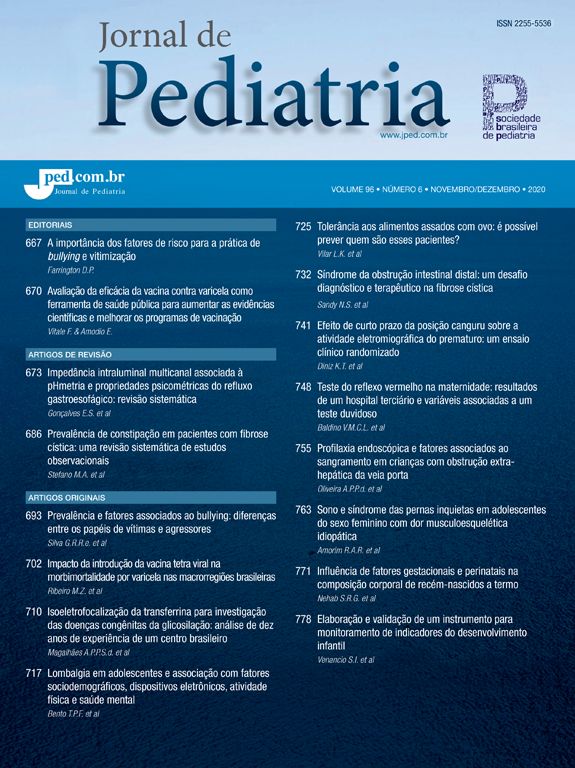In order to determine the etiologic agents involved in atopic diseases in Brazilian children, we have performed this multicentric study in 8 areas in Brazil. We have done prick tests with inhalants and food antigens and analyzed skin tests results, considering positive the wheal mean diameter 3 mm. 22,2% of skin tests were negative and the majority were positive to inhalants: D.pteronyssinus(Dpt) (66,6%) and D. farinae(Df) (66,0%), house dust extract (29,0%), dog's epithelium (19,2%), cat's epithelium (8,8%), feather (5,5%), molds (4,2%), Penicillium sp (2,2%) and Lollium perene (0,6%). We have had 9,1% of food positive tests: cow milk (5,2%), peanut (3,5%), corn (3,2%), cocoa and soya (2,2%), eggs and wheat (1,9%). We have concluded that the domestic mites are the most important agents involved in the etiology of atopic diseases in Brazilian children, and the extracts involved, in line with the sensitization of each geographical area.
O fator de impacto mede o número médio de citações recebidas em um ano por trabalhos publicados na revista durante os dois anos anteriores.
© Clarivate Analytics, Journal Citation Reports 2025
O CiteScore mede as citações médias recebidas por documento publicado. Mais informação
Ver maisSJR é uma métrica de prestígio baseada na idéia de que todas as citações não são iguais. SJR utiliza um algoritmo similar ao page rank do Google; é uma medida quantitativa e qualitativa ao impacto de uma publicação.
Ver maisSNIP permite comparar o impacto de revistas de diferentes campos temáticos, corrigindo as diferenças na probabilidade de ser citado que existe entre revistas de distintas matérias.
Ver mais







